1. All in the Family – Standing Up for What’s Right
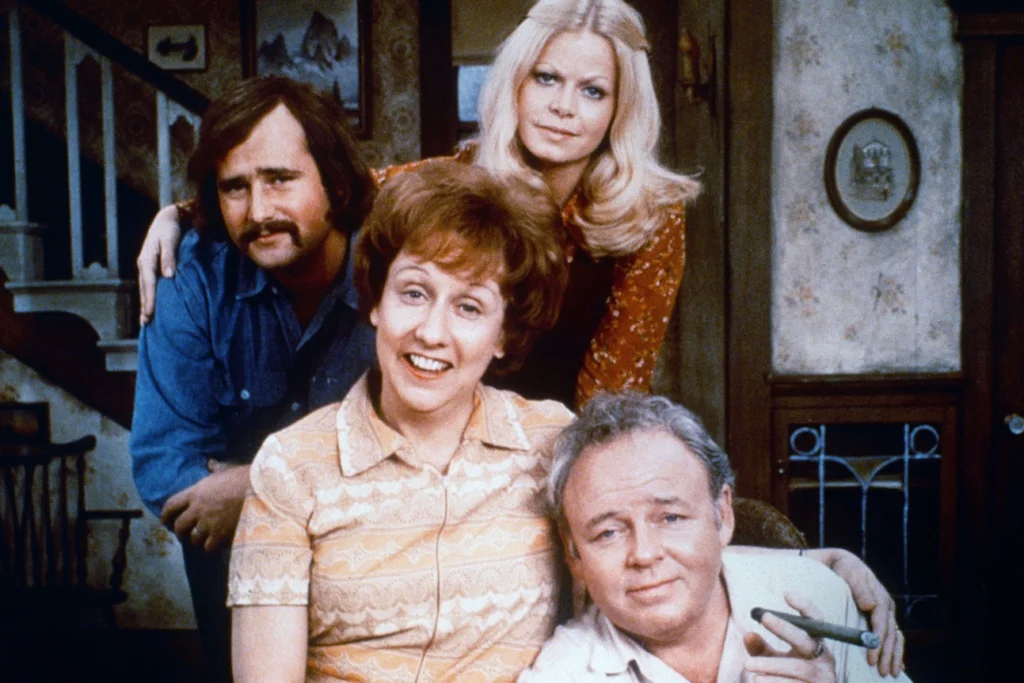
All in the Family introduced viewers to Archie Bunker, a man whose prejudices made him a controversial figure, but it also opened up critical conversations about race, gender, and societal change. The show was revolutionary in how it tackled taboo topics, showing the importance of confronting personal biases. It taught us that sometimes, even the most flawed individuals have the potential for growth—especially when challenged by those around them. The sharp contrasts between Archie and his more progressive family members were not only comedic but also educational.
As viewers, we might not have fully realized it at the time, but All in the Family demonstrated how vital it is to engage in difficult conversations. The show didn’t shy away from portraying uncomfortable truths, encouraging audiences to look at their own prejudices and reconsider outdated norms. Over time, we’ve come to appreciate how the show’s humor was a powerful tool for social change. And even though it was often controversial, it offered a lesson on the importance of empathy, understanding, and challenging the status quo.
2. The Mary Tyler Moore Show – The Power of Independence

At the heart of The Mary Tyler Moore Show was Mary Richards, a single woman navigating her career in a male-dominated newsroom. While the show made us laugh with its light-hearted moments, it also modeled the importance of professional ambition and personal independence. In an era when traditional gender roles were still prevalent, Mary was a trailblazer, showing that women could excel in both their personal and professional lives. It subtly encouraged a generation of viewers to pursue their dreams, regardless of societal expectations.
While we may have focused on the fun characters and memorable moments, the real life lesson was about self-reliance and empowerment. Mary didn’t need a romantic partner to validate her—she found fulfillment in her work and friendships. The Mary Tyler Moore Show demonstrated that women could and should seek careers and lifestyles that were meaningful to them. By watching Mary build her career and life on her own terms, many of us learned that happiness and success come from within, not from external validation.
3. Good Times – Resilience in the Face of Adversity
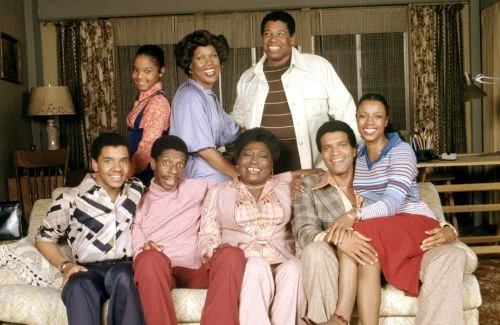
In Good Times, the Evans family faced hardship, yet they always remained grounded in love and optimism. The show’s portrayal of a working-class African American family in Chicago provided an honest look at poverty, systemic inequality, and the power of community. While we may have laughed at the witty banter between the characters, it was the underlying message of resilience that resonated most. The Evans family taught us that, no matter how difficult life may get, we can survive through hard work, perseverance, and supporting one another.
We didn’t fully appreciate it as kids, but Good Times was filled with lessons on the importance of family and unity in overcoming challenges. The characters’ determination to make the best of their circumstances, especially in the face of systemic barriers, taught viewers about the strength of resilience. The show helped break down stereotypes while highlighting the importance of staying connected to your values, no matter how tough life gets.
4. The Partridge Family – Embracing the Unexpected
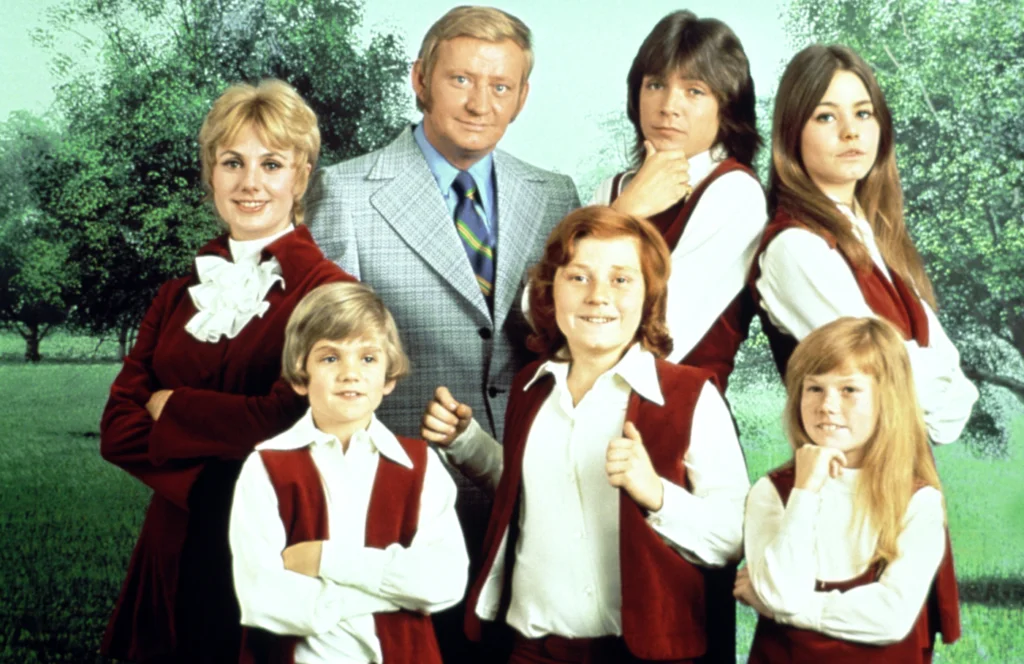
The Partridge Family may have seemed like just a feel-good show about a musical family on the road, but it taught us to embrace the unexpected. The Partridges lived a life that wasn’t ordinary, and they thrived in their unconventional way. They showed us how to turn chaos into something positive and how being different can lead to wonderful adventures. Through their humorous family dynamics, they taught viewers that life doesn’t always go according to plan—but that’s okay.
As kids, we probably didn’t realize how The Partridge Family was also subtly telling us that success isn’t about following the traditional path—it’s about being true to who you are. The family’s journey—literally and figuratively—reminded us that life is full of surprises, and sometimes, embracing the unexpected can lead to fulfilling outcomes. Whether it was their tour bus adventures or their ability to find joy in the little things, the Partridges instilled in us the lesson of adaptability and optimism.
5. Maude – Challenging Norms
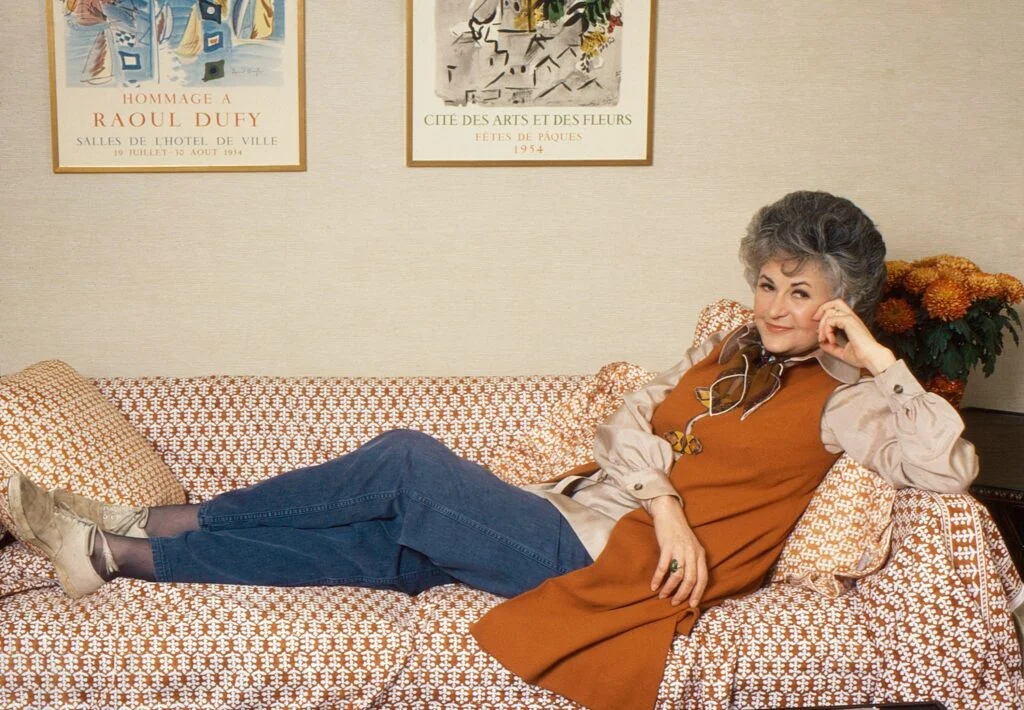
Maude Findlay, the sharp-tongued feminist of Maude, often tackled controversial issues head-on, from abortion rights to gender equality. While the show was often hilarious, it carried an undercurrent of social commentary that was groundbreaking for its time. Maude wasn’t afraid to speak her mind or fight for what she believed in, regardless of societal expectations. She encouraged us to question the world around us and to challenge traditions that no longer served us.
Looking back, we can see how Maude taught us about empowerment and the importance of standing up for what we believe in. Through her character, the show explored how difficult, yet necessary, it can be to go against the grain. Maude’s boldness reminded us that sometimes, breaking the rules is the only way to make progress. In many ways, Maude taught us that true strength comes from being unapologetically ourselves.
6. Happy Days – The Importance of Family and Friendship
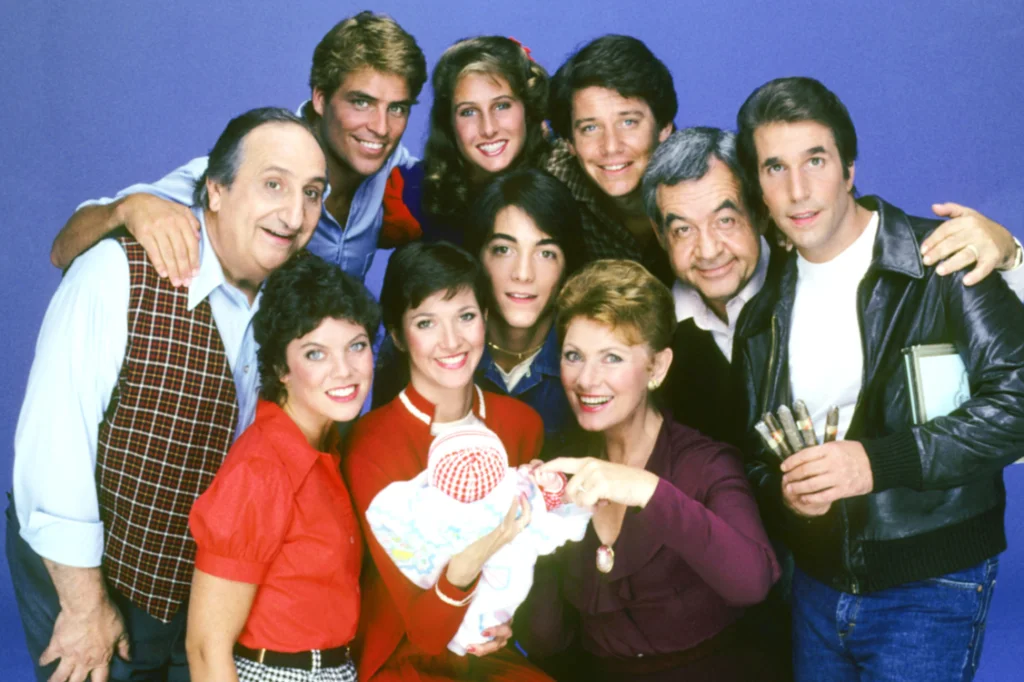
Happy Days gave us the idealized version of the 1950s, filled with laughter and good times. But beyond the catchy theme song and Fonz’s signature move, the show taught us about the importance of family and friendship. Richie, Joanie, and the gang showed us how sticking together through thick and thin made all the difference in life. Whether it was dealing with school, love, or family dynamics, the group always had each other’s backs.
Though we may have overlooked it as kids, the show’s constant reminders about loyalty and unconditional support made us realize how valuable close relationships are. Happy Days made us appreciate the little moments and the people who are there for us, no matter what. It showed us that, at the end of the day, it’s the connections we have with others that provide meaning in our lives, even if the world around us is constantly changing.
7. One Day at a Time – Navigating Life’s Challenges with Humor
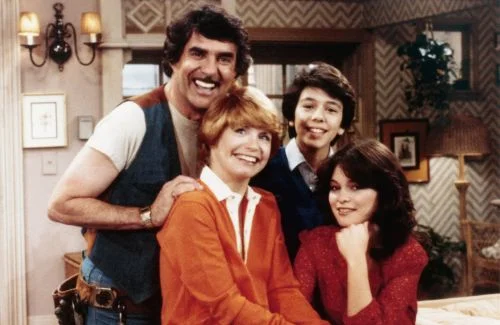
One Day at a Time depicted the everyday struggles of a single mother, Ann Romano, and her two daughters. The show was ahead of its time in addressing issues such as divorce, mental health, and financial hardship, all while maintaining a sense of humor. Ann’s strength and the love shared between the characters offered viewers a blueprint for overcoming life’s difficulties. The title itself was a reminder that progress, even when it feels slow, happens one step at a time.
As we watched Ann navigate life as a single mom, we didn’t always recognize the importance of her lessons. She taught us about resilience, optimism, and the power of facing challenges with a smile. One Day at a Time showed us that tough times are inevitable, but they don’t have to define us. The key is to keep moving forward, no matter how small the steps may be.
8. WKRP in Cincinnati – The Value of Authenticity
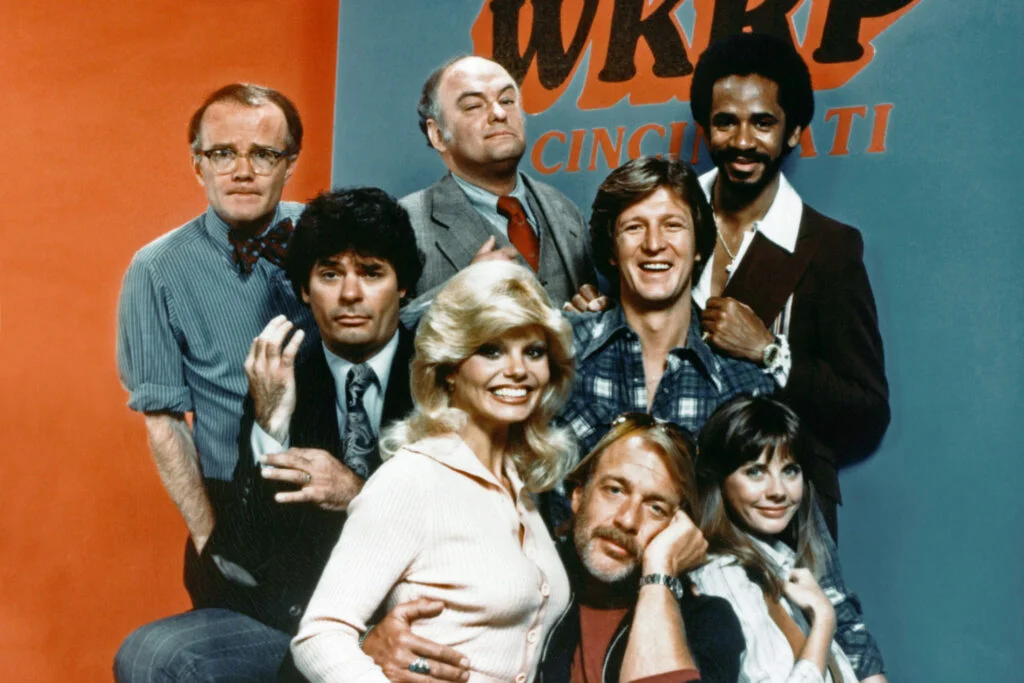
At its core, WKRP in Cincinnati was about a group of eccentric radio station employees who often found themselves in hilarious and unpredictable situations. But beneath the laughs, the show taught us about authenticity and the importance of being true to ourselves. The quirky characters each had their flaws, yet they were all lovable because they didn’t try to be anyone else. Whether it was Johnny Fever’s laid-back attitude or Les Nessman’s over-the-top seriousness, they showed us that authenticity can make us stand out in a world full of conformists.
Looking back, WKRP in Cincinnati offered more than just laughs—it taught us to embrace our individuality and never apologize for it. The characters were refreshingly real, even when their situations were far from it. The show reminded us that sometimes, it’s okay to be a little out of sync with the world around us as long as we stay true to who we are.
9. The Jeffersons – Striving for Better
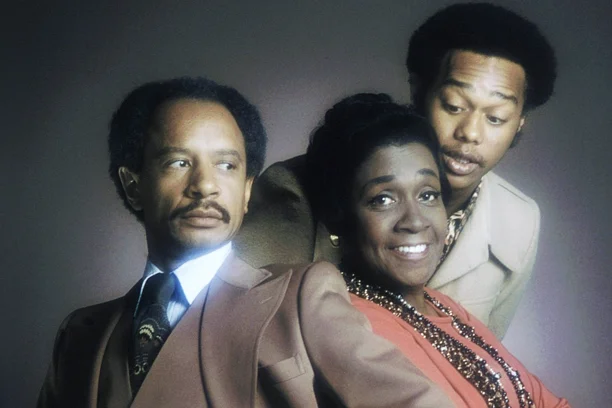
The Jeffersons portrayed George and Weezy as a couple who had worked hard to improve their lives and move “on up” to the East Side. While the show was often a source of laughs, it also subtly taught us about ambition, perseverance, and the importance of striving for more. George’s unapologetic attitude and his belief in upward mobility encouraged viewers to work hard for what they want. It was a show that showed the value of pushing for a better future, no matter where you come from.
What we didn’t fully realize at the time was that The Jeffersons was teaching us that success doesn’t come without its challenges, but those challenges are worth overcoming. George’s journey from modest beginnings to financial success showed us the importance of setting goals and never giving up on them. It also showed that, despite the hard work, it’s essential to enjoy the little victories along the way.
10. Chico and the Man – Empathy and Understanding Across Cultures
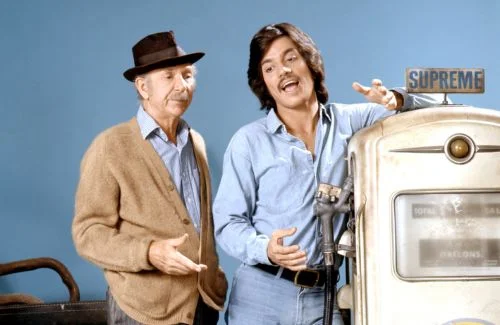
In Chico and the Man, the unlikely friendship between Ed Brown, a grumpy mechanic, and Chico, a young Latino man, helped break down racial stereotypes. The show depicted the complexities of cultural differences and how empathy and understanding can bridge those divides. Ed’s initial reluctance to accept Chico gave way to a deep friendship that was heartwarming and educational. It reminded us that people from different backgrounds can enrich each other’s lives in surprising ways.
While we might have focused on the humor and antics, Chico and the Man actually offered a valuable lesson about the importance of overcoming prejudice. The show depicted how people can change their views when they open their hearts and minds to others. It also showcased the power of genuine friendship and how it can transcend cultural and generational gaps.
11. Diff’rent Strokes – Overcoming Adversity
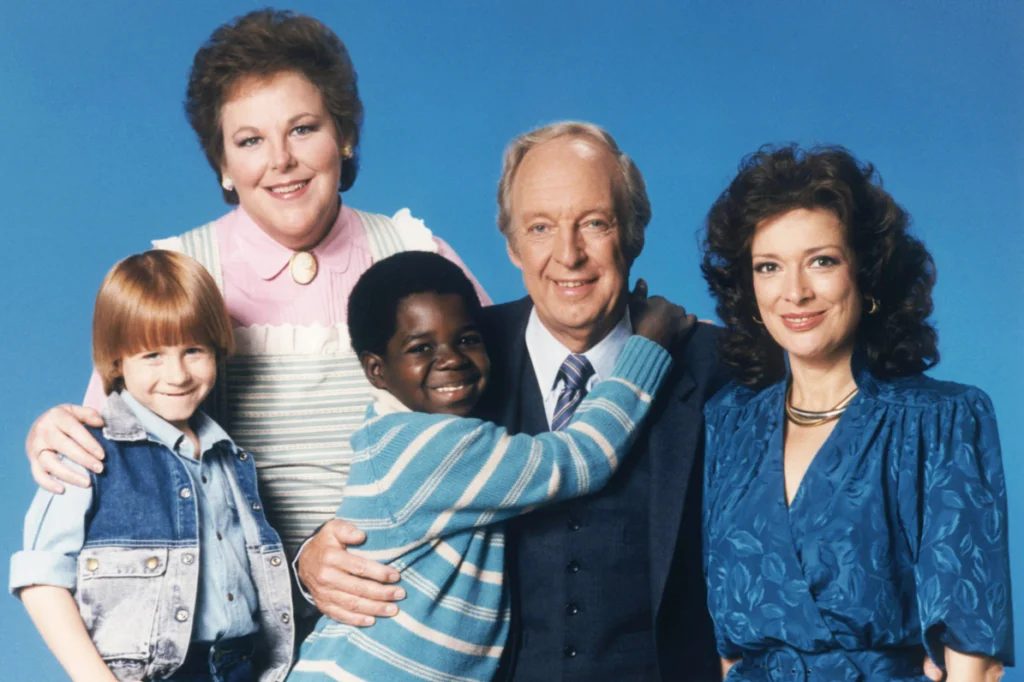
Diff’rent Strokes introduced audiences to Arnold and Willis, two boys from Harlem who were adopted by a wealthy businessman. The show wasn’t just about their comical misadventures; it also dealt with serious issues like class disparity, racism, and personal growth. The characters faced their challenges head-on, teaching us how to adapt to new situations and stay true to ourselves despite adversity.
As we watched Arnold and Willis adjust to their new lives, we were also learning about resilience and adaptability. The show didn’t shy away from tough topics, and through humor and heartfelt moments, it showed us that life’s challenges are opportunities for growth. Diff’rent Strokes reminded us that, no matter where we come from, we can overcome obstacles with the right attitude and support.
12. All in the Family – The Importance of Progress

Another powerful lesson from All in the Family was about the importance of progress, both personally and socially. While Archie Bunker represented an outdated way of thinking, the show gradually demonstrated that change, though difficult, is necessary. The character of Edith, who was often seen as naïve, showed us that love, patience, and understanding could lead to progress. As the show’s characters evolved, we were reminded that change is often uncomfortable but ultimately rewarding.
In retrospect, All in the Family wasn’t just a comedy about a dysfunctional family—it was a show that forced us to rethink our own views. Through humor and difficult conversations, the show pushed us toward a more open-minded, inclusive society. It showed us that no matter how hard change can be, it is always worth striving for a better, more understanding world.


